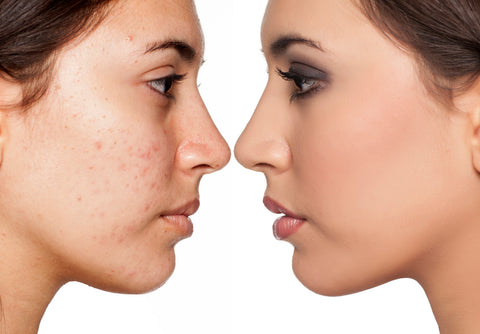#FilterDrop: Instagram Is Finally Getting Real
You may have heard chatter about a new policy on the use of filters on Instagram, and it’s true; the Advertising Standards Authority (ASA) has ruled in favour of the #Filterdrop campaign, and put into action filter labelling to prevent the misuse of filters that misleadingly exaggerate the use of beauty products. If you have posted a filtered selfie on Instagram recently, you may have seen a small description at the bottom informing Instagram users that you have applied a filter to your post. You have the #Filterdrop campaign to thank for that and let’s be honest, it’s what the platform needed.
Sasha Louise Pallari, a UK based model and make-up artist, launched the #FilterDrop campaign when she noticed influencers were using filters to enhance, and possibly fake the performance of beauty products. In July 2020, Pallari campaigned against the use of such filters as they contributed to low self-esteem. By falsely advertising the exaggerated and/or fake benefits of beauty products, consumers are compelled to buy them, under the pressure of needing to look a certain way. It is no coincidence that in August 2020, the annual Girl’s Attitude Survey carried out by Girl Guiding on girls aged between 11-21 revealed that 48% of the subjects regularly use apps or filters to make photos of themselves look better online, and 39% said they feel upset that they can’t look the way they do online.
The ASA concluded that the use of filters in this case breached the Committees of Advertising Practice (CAP) misleading, advertising and exaggeration clauses. Two examples were used to assess the need for action in response to the #FilterDrop campaign; Instagram stories for Tanologists Tan and Skinny Tan Ltd were observed closely for their use of filters for the purpose of advertising. Influencers who were using tanning products from these two brands were criticized for using filters to falsely advertise by enhancing the performance of those products. It is likely that these advertisements may have misled consumers through the use of filters that misleadingly exaggerated tanning effects.
READ ALSO: Don’t You Know That You’re Toxic?
The outcome of this ruling is quite simple, all UK-based influencers, celebrities and brands are now advised against using filters to promote beauty products, if the purpose is to exaggerate the performance of these products. Filter labelling on Instagram was not created to permit advertisers to continue to advertise falsely, just because consumers are informed of what filter was used.
If influencers, celebrities and brands are found to be posting adverts that break the new rules, the post will be taken down and not permitted to be reposted. If the advertiser chooses to ignore these suggestions, it could cause serious damage to their reputations and they are advised to use filters with caution. In the case that users ignore this warning, the ASA will work closely with social media platforms to ensure that the advertisers are pressured to adhere to the new changes.

This is not the first time rules have changed for filters or advertisements on Instagram. In 2018, users were instructed to disclose whether they have been paid to advertise a product or a service. In 2019, Instagram banned the use of AR cosmetic surgery filters like Plastica and FixMe, filters that were designed to mimic the look of fillers and facelifts. Instagram like many other social media apps is constantly changing in look and policy. The successful #FilterDrop campaign is not the last of its kind.
READ ALSO: How Instagram’s Plastic Filters Distort Young Girls’ Idea of Beauty
Instagram has turned out to be the wild west of advertising rather than the organic and honest community that it had the potential of becoming. The targeted cosmetic industry has strong ties with the modelling industry, and with the lines blurred, how will this spread influence into the fashion industry? It won’t be long before a similar, possibly stronger policy is applied for altered body images that are used to misleadingly advertise the fit of clothes.
If social media platforms are serious about policing these changes, we might see one of two possible outcomes. Brands may start to post honest content, depicting skin in its natural state, or they may reach out strictly to influencers and celebrities with the type of skin texture and look they are trying to market, which in itself is extremely deceptive.
If you need any advice on how to avoid posting misleading content on your Instagram account, you can visit this ASA page to read their guide.
Written by Bethel Haimanot


Brilliant read!! I definatley think social media have a responsibility with filters and do play a part whether they know or not in womens self esteem and confidence.
Leave a comment